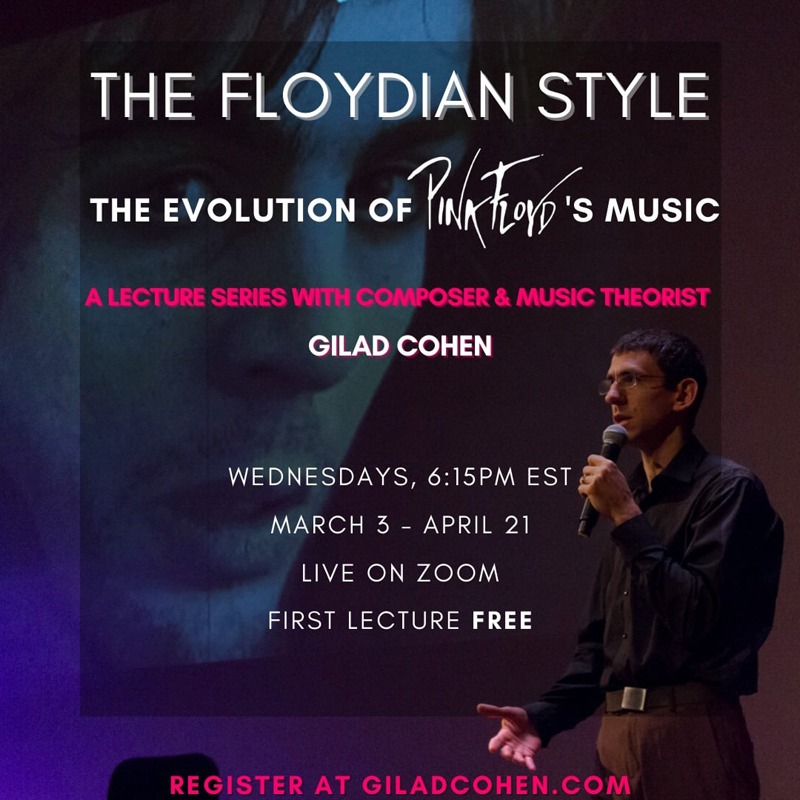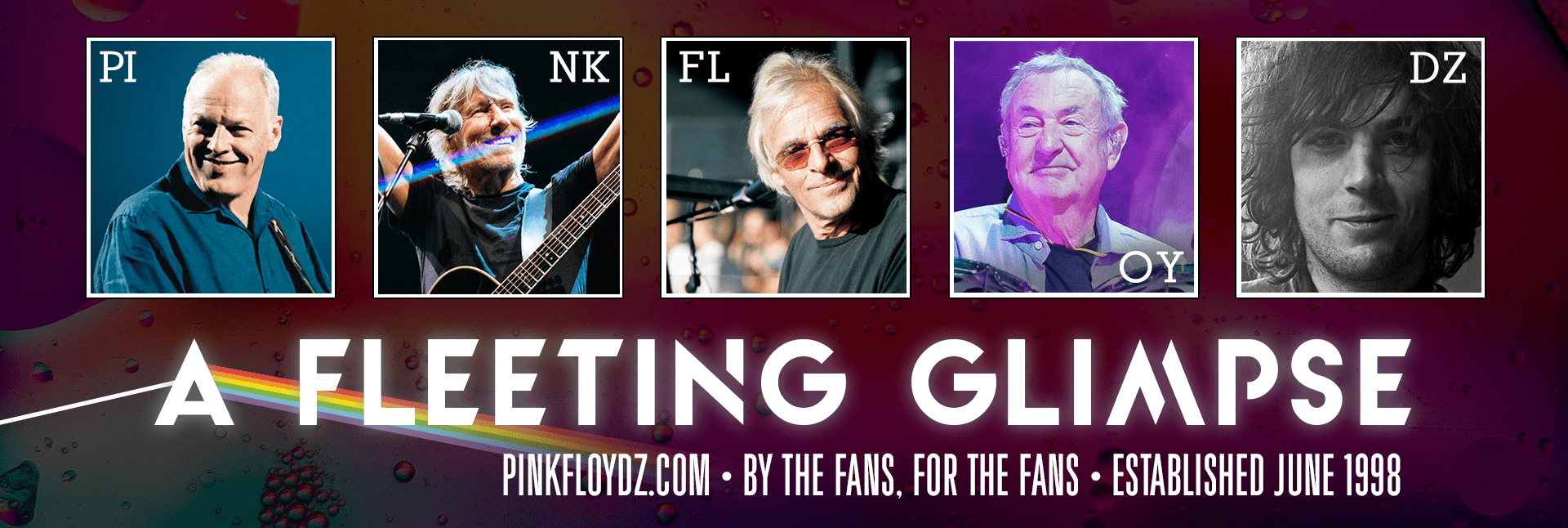 Professor Gilad Cohen further explores The Floydian Style
Professor Gilad Cohen further explores The Floydian Style
Debuting on March 3rd, educator, musician, and Pink Floyd pundit Gilad Cohen is offering a remote lecture series entitled The Floydian Style for the general public and Floyd fandom to experience. Cohen – who along with Dave Mock co-created the academic conference Pink Floyd: Sound, Sight and Structurewhich was held at Princeton University in 2014 – has been teaching Floydian curriculum for nearly a decade now as well as lecturing and publishing in the field. In light of this new endeavor I was curious to catch up with Gilad regarding the series as well as other Floydian-related inquiries. My thanks to Gilad for his time and thoughtful responses.
In the aftermath of the Pink Floyd Conference and how complex an event it was to put on, how did it affect your relationship to the music and to fandom overall, if at all?
Putting on the Pink Floyd Conference with my friend Dave Molk was indeed a huge undertaking, but having memories of moments such as the 6-hour surround listening session, and hearing from people later what the conference has meant for them, make it all worth it. One of the things I realized during the Conference is how many Pink Floyd fans are eager to dig deeper into the music, discuss it with others, and learn more about it. I don’t think this is true for many rock bands. In the case of Pink Floyd, it often happens that we listen to an album we’ve known for years, and yet we suddenly discover another cool guitar part, or production trick, or effective moment of marriage between lyrics and music that we’ve never thought about before. This is why I still enjoy writing and lecturing about it, and I also find that it informs my own compositions for the concert hall.
How did the lecture series come about, beyond your desire to further explore the music of Pink Floyd from a more technical perspective rather than merely one of cultural criticism?
I’ve been teaching an extensive 4-credit course about Pink Floyd’s music for 7 years now at Ramapo College of New Jersey, where I’m an Associate professor. My focus isn’t the history of the band; there are excellent books and videos out there about it. Rather, my students and I attempt to understand how the building blocks of lyrics, composition, arrangement, production, visuals, and their intersections make Pink Floyd’s art so powerful, and we also touch on broader issues such as originality and authenticity, expectation and perception, and art and emotion. This lecture series is an opportunity for me to discuss these things with a wider audience. For instance, a core question in this series is how the band’s style has evolved through the years. The early Barrett-led music is so different than that of Wish You Were Here, and The Wall presents yet another huge leap. Can we identify common threads from Barrett’s style through the Gilmour-led era? In what ways do Atom Heart Mother and Meddle form the style of The Dark Side of the Moon? I can’t wait to talk about these issues with fellow Pink Floyd enthusiasts.
It must be quite a challenge for you as an educator in the pandemic era, especially given your particular field. How difficult has it been to teach music in the online realm?
Teaching performance remotely is really hard, so in my performance classes we try to meet in person at least a few times during the semester, for practicing things like bass and drum grooves, following each other’s cues, etc. When teaching composition and songwriting remotely, I am actually surprised how meaningful some of our discussions are, and how much we get to know one another through sincere sharing of one’s art and heart. The pandemic era also has its positive sides: everyone is now accustomed to using Zoom, and I find myself giving international remote lectures on a regular basis. It’s wonderful to be able to connect simultaneously with people from different places around the world.
The reissue campaign from 2011 was titled Why Pink Floyd…? and so I’d like to ask you the same question, after a fashion. In the 21st Century, what makes Floyd relevant, or as relevant as they were in the 20th Century?
Lyrically, many of Pink Floyd’s subject matters are relevant in the 21st century just as they were in the previous century. Some topics seem more relevant than ever – The Wall resonated with Donald Trump’s vision of a wall in the Mexican border (a connection made clear by Waters himself), the themes of Animals and The Dark Side of the Moon resonate with the feelings of isolation and anxiety during the COVID-19 pandemic, and the pressures of modern life that are portrayed in much of Pink Floyd’s work have continued if not even increased in the past few decades.
Musically, I find that many contemporary pop and rock artists in the mainstream tend to go for the safe and familiar. It often feels like the goal has become to make your song as similar to others as possible, rather than to explore your soul and cave a personal artistic path. Likewise, instrumental sections seem rarer and shorter than ever (when was the last time you heard a 30-second intro in a new song on the radio?). Pink Floyd, however, have avoided formulas and explored inventive ways to express their ideas, making their music specific rather than generic. So, I think their music still stands out and continues to influence others.
The Floydian Style is an eight-part lecture series conducted via Zoom. The first session is free for all participants, subsequent lectures are available for $15 each ($12 for current students).
Register at: https://giladcohen.com/the-floydian-style
A big thanks from AFG to Julie Skaggs for another fine contribution to the site!
